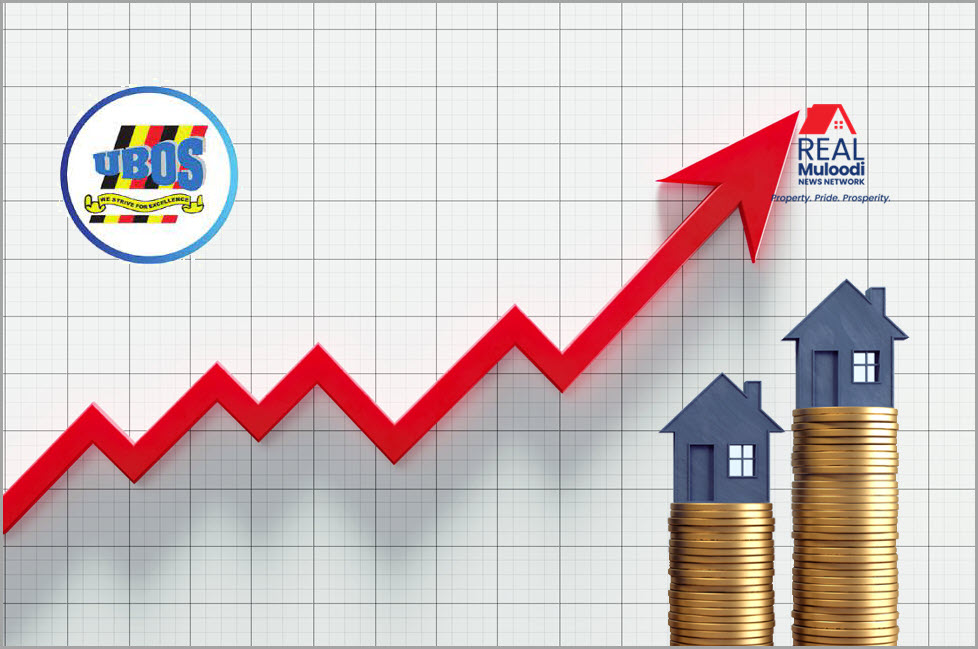UGANDA, Kampala | Real Muloodi News | Residential property prices in Uganda have steadily increased this year, and will end the financial year on a high. According to the Uganda Bureau of Statistics (UBOS), residential property prices have increased by an average of 5.6 per cent during the 2020/21 financial year.
UBOS tracks the movement of residential property prices in the Greater Kampala Metropolitan Area, which includes Kampala, Wakiso, Makindye, Nakawa, Kawempe and Rubaga.
Nakawa saw the highest increase in prices, where property prices rose to 13.4 per cent this financial year. This is a significant increase from the 4 per cent growth registered in 2019/2020.
Residential prices in Wakiso were also up, increasing to 7.3, per cent during the financial year 2020/2021, compared to 2.2 per cent registered in the previous financial year.
UBOS also compares the year-on-year quarterly changes, that is, the residential property prices index for the 12 months ending Q4 2020/2021 compared to the price index for the 12 months ending in Q3 2020/2021.
Annual prices were again up in the quarter ending Q4 2020/2021, increasing to 8.2 per cent, up from minus 0.5 per cent in the quarter ending Q3 2020/2021.
UBOS attributed the quarterly increase to residential properties in ‘Kawempe & Rubaga’ area that increased to 10.4 percent for the year ending Q4 2020/2021 compared to minus 8.9 percent registered for the year ending Q3 2020/2021.
In addition, residential properties in ‘Kampala & Makindye’ areas increased to 14.4 percent for the year ending Q4 2020/2021, compared to 7.6 per cent registered for the year ending in Q3 2020/2021.
The fact that residential properties prices have continued to remain strong despite the economic impact of COVID-19, can be attributed to two major factors:
1) The East African Crude Oil Pipeline Project (EACOP)
According to the most recent Petroleum Authority of Uganda (PAU) statistics, the number of local housing units occupied by oil and gas industry players increased from 40 in 2020, to 200 by the end of March 2021. Property owners saw renewed housing demand and higher returns on investment.
2) Uganda’s Growing Housing Deficit
Uganda is currently facing a housing deficit, and to date, it has 2.4 million units standing, 1.3 million of which are in the rural areas and another 210,000 units in urban areas. The remaining 900,000 units are occupied, but need maintenance and upgrading.
The conclusion is, now is a great time for property investors to look toward the Uganda residential market. This is particularly so after the government has reduced the effective rental income tax rate to 7.5% after factoring in deductions, down from an effective rate of 16.5% for individual landlords the previous financial year.
READ MORE LIKE THIS:



